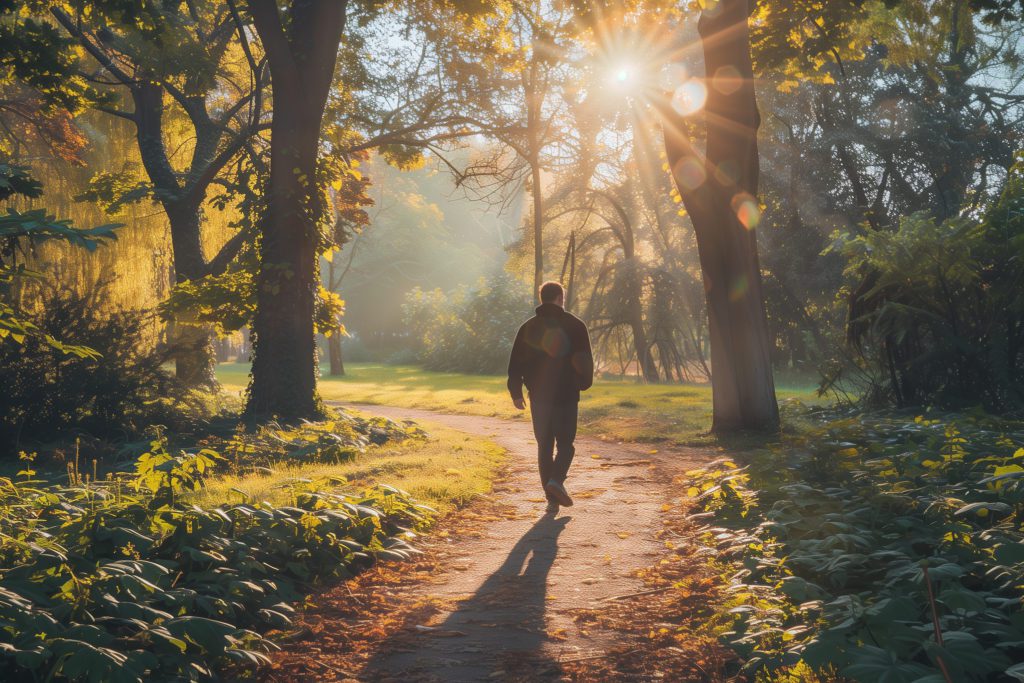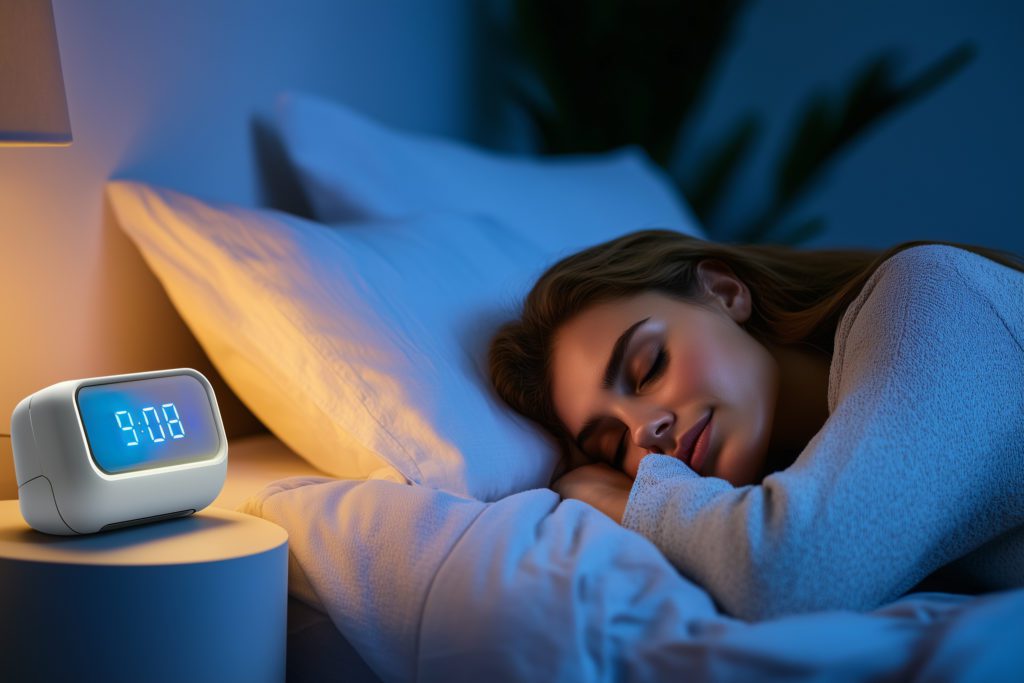
Sleep Hygiene for Seniors: Creating the Ideal Sleep Environment
Address senior sleep problems with our expert advice on aging and sleep. Learn how to overcome insomnia elderly issues and enjoy better health.

Unlock the secrets to restorative sleep in your golden years
Are you finding you don’t seem to sleep as well as you used to? Do you start each day feeling groggy and irritable, even though during your younger years you felt sparky and energized? As the years roll by and we begin the journey towards aging, for some, sleep can become an increasingly precious commodity.
From medical illnesses and psychiatric disorders to circadian rhythm and lifestyle changes, there are a number of things that may interfere with your ability to fall—and stay— asleep as you grow older. Thankfully, we have plenty of tips to help!
At Pillow, we help adults enhance their sleep hygiene and wellness, giving them the tools and knowledge needed to create the ideal sleep environment for restful nights—during all stages of their lives. Read on to discover the common challenges elderly people face, along with practical strategies and insights to improve sleep for seniors.
How Does Natural Aging Impact Sleep?
An interesting fact is that most older people actually need slightly less sleep than their younger counterparts, with the over 65s needing an average of 7-8 hours per night, compared to 7-9 for the adult population in general.
However, a complex interplay of physiological changes can significantly affect our sleep quality and duration. One major factor is that older bodies produce significantly less melatonin, the hormone that regulates our circadian rhythm, or internal clock. This can lead to:
- Difficulty getting to sleep
- Increased night-time wakefulness
- Early morning awakenings
These changes in circadian rhythm with age mean that seniors often experience a shift in their sleep-wake cycle, tending to want to go to bed earlier and wake up earlier. This can lead to a disruption in social schedules and mean older people are getting less exposure to natural light and vitamin D—especially in winter—further impacting sleep quality.
Health Problems Associated With Aging and Sleep
Along with the reduction in melatonin, older people may experience sleep issues because of health issues such as:
- Sleep Apnea
- Restless Legs Syndrome (RLS)
- Cardiovascular Disease
- Neurodegenerative Disorders
- Menopause (women)
- Chronic Pain
- Addressing Senior Sleep Problems
When it comes to getting better sleep despite health challenges or natural aging, there are plenty of steps you can take to improve things. Here are some tips for setting up the ideal sleep environment:
Creating a Healthy Sleep Environment
1. Keep your bedroom cool, quiet, and dark
We recommend keeping your bedroom around 65 degrees Fahrenheit for comfortable sleep. Explore the use of blackout curtains, eye masks, and white noise machines if needed.
2. Invest in comfortable bedding
Is your mattress hindering good sleep? Your physical needs may have changed as you have gotten older. Research different types of supportive mattresses and pillows that cater to your specific needs, such as those designed for side sleepers or people experiencing back pain.
3. Ensure your sleep environment is safe
As an older person, you may find you’re less agile, more stiff, or experience aches and pains when you move about. To make things easier for yourself if you do need to get up in the night, it’s important to ensure your surroundings are safe. You’ll need a bed that’s easy to get in and out of, minimal clutter around the bed to reduce the risk of tripping, good night lighting, and potentially assistive devices (like bed rails).
Adapting Sleep-Friendly Lifestyle Habits
While you can’t do much to slow down natural aging or physical ailments that may be impeding good sleep, you always have the option of adopting healthier habits to improve your sleep quality and overall well-being:
1. Establish a sleep schedule
It’s hugely helpful to go to bed and wake up at the same time every day (yes, even on weekends!) to help regulate your body's circadian rhythm.
2. Keep physically active
Engaging in regular exercise such as walking, swimming, or gentle yoga can improve sleep quality (although energetic workouts close to bedtime are not advised). Even gentle activities such as slow walking, tai chi and yin yoga can improve both the quality and duration of your sleep as you age.
3. Limit your fluid intake
As we age, we become more prone to developing nocturia, which increases the frequency of getting up in the night to urinate. Around half of over 65s get up at least once a night to empty their bladder, with around a quarter having to do so twice or more. Since around 40% of people have difficulty getting back to sleep after a nighttime awakening, this can mean disturbed sleep. One way of reducing this is to restrict fluids in the evenings, particularly caffeinated drinks which act as a diuretic.
4. Watch your diet
Heavy meals, which may be hard to digest, are not advised in the evening. If you do find you’re hungry before bed, opt for a light, low-fat snack.
5. Create a bedtime routine
To wind down before sleep, you could try reading, listening to soothing music, stretching or practicing meditation to signal to your body that it's time to relax. If you have the time, why not take a lovely warm bath to relax your mind and senses?
6. Time medication carefully
Nearly nine in 10 adults over 65 are taking prescription meds of some sort—but are drugs affecting your sleep quality? It’s important to read the information accompanying any pills you take, since they may cause insomnia or frequent awakenings if taken too close to bedtime. Other drugs might cause drowsiness that, if taken earlier in the day, could interfere with your natural sleep cycle. If you’re in doubt, speak to your healthcare professional for advice.
7. Limit exposure to blue light
Avoid looking at screens (TV, tablet, or smartphone) at least an hour before bed and consider using blue light filters on electronic devices. Blue light blocking glasses can also reduce the melatonin-suppressing effects of bright lights—even more important in older people who produce less of the hormone.
When to Seek Help
If you’re experiencing persistent sleep issues and are unsure why, it’s always advisable to consult a healthcare professional who may offer diagnoses and treatment options to further investigate sleep disorders. Cognitive-behavioral therapy for insomnia (CBT-I), for example, is a highly effective treatment for many sleep disorders.

Written by
Georgia Austin
Professionally trained SEO copywriter, editor, and content marketing strategist with over 7 years of experience
Download Pillow
Get help
Press & News
Legal
Connect
X (Twitter)
Company
Copyright © Neybox Digital Ltd.



